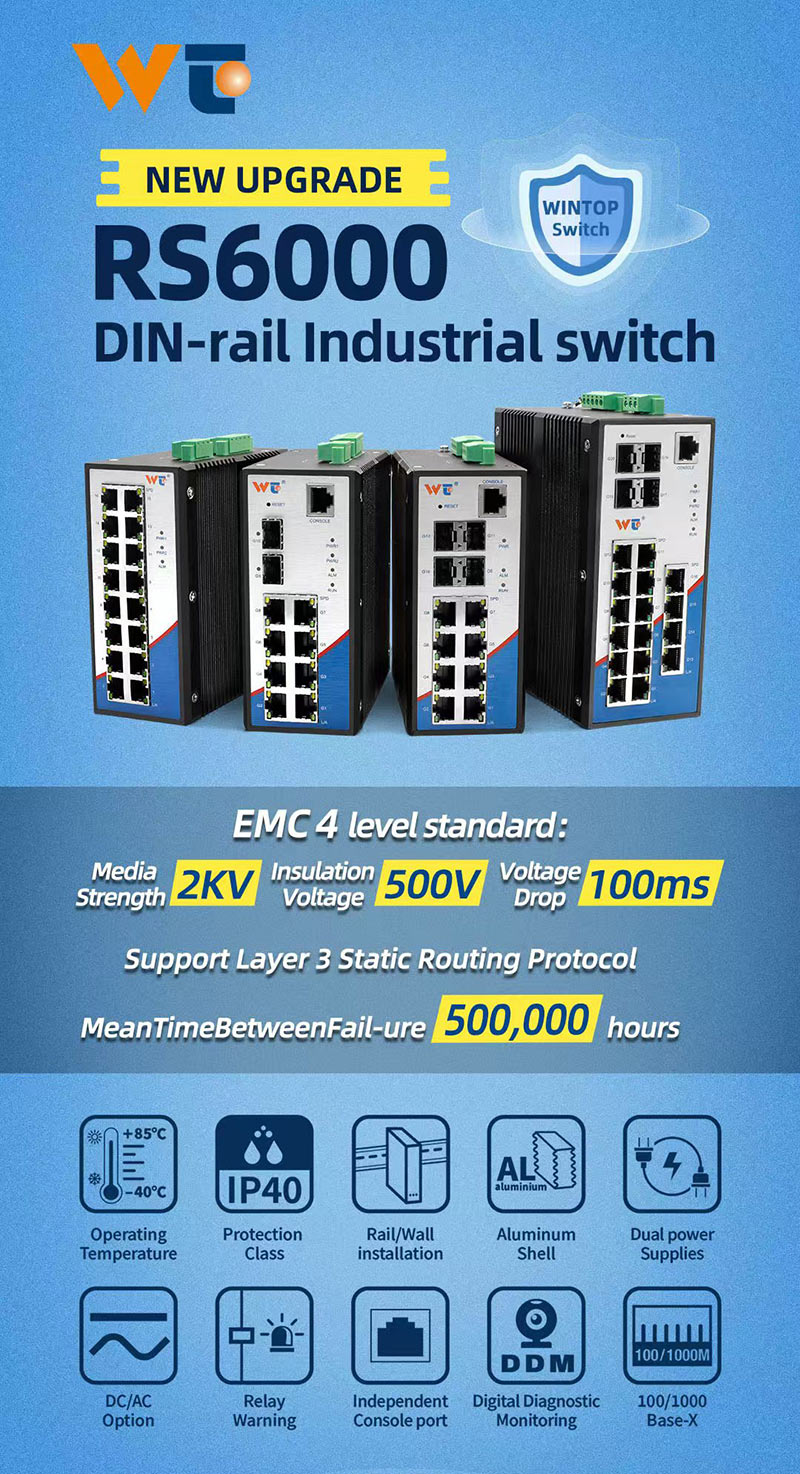Ensuring Safety in Nuclear Reactor Monitoring: The Role of Industrial Switches in Data Security and Reliable Transmission
In the heart of modern energy production, nuclear reactors play a pivotal role in generating clean and efficient power. However, the operation of these sophisticated systems is fraught with challenges, primarily concerning safety and security. Monitoring nuclear reactors involves managing a vast array of data, which must be transmitted reliably and securely. This is where industrial switches become indispensable, enhancing data security and ensuring reliable transmission. Let's delve into how these technologies safeguard our nuclear power plants.
The Importance of Data Security in Nuclear Reactor Monitoring
Nuclear reactors are complex systems that require constant monitoring to ensure safe operation. The data collected from various sensors and control systems provide real-time insights into the reactor’s status. Any compromise in data security could lead to catastrophic consequences, potentially endangering lives and the environment.
Industrial switches play a crucial role in maintaining the integrity of this data. They are designed to handle the robust demands of industrial environments, offering superior protection against cyber threats. By encrypting data transmissions and employing advanced security protocols, these switches prevent unauthorized access and tampering, thereby safeguarding the reactor's operational data.
Case Study: Cybersecurity Breach in a Nuclear Facility
Consider the infamous case of the Stuxnet worm, a sophisticated cyber attack that targeted Iran's nuclear facilities. The malicious software managed to infiltrate the control systems, causing significant damage to the centrifuges used for uranium enrichment. This incident underscored the critical need for robust data security measures in nuclear monitoring systems. Industrial switches, with their enhanced security features, could have mitigated such risks by providing a fortified layer of defense against cyber threats.
Ensuring Reliable Data Transmission
In addition to security, the reliability of data transmission is paramount in nuclear reactor monitoring. The data collected from sensors must be transmitted seamlessly to the control centers for real-time analysis and decision-making. Any delay or loss of data can hinder the ability to respond promptly to potential issues, compromising the safety of the reactor.
Industrial switches are engineered to ensure high-speed, reliable data transmission even in the most demanding environments. They support a range of protocols and are equipped with redundancy features that guarantee continuous data flow, minimizing the risk of transmission failures.
Scenario: Real-Time Monitoring in Action
Imagine a scenario where a nuclear reactor's coolant system starts to malfunction. Sensors detect abnormal temperature rises and relay this information to the control center. Thanks to the industrial switches, this critical data is transmitted instantaneously, allowing operators to take immediate corrective actions, such as activating backup cooling systems. This prompt response is crucial in preventing overheating and potential reactor meltdown, showcasing the vital role of reliable data transmission in nuclear safety.
Enhancing Operational Efficiency
Beyond safety and security, industrial switches contribute to the overall efficiency of nuclear reactor operations. By ensuring that data is transmitted accurately and securely, they enable more precise control and optimization of the reactor's performance. This leads to improved operational efficiency, reducing downtime and maintenance costs.
Example: Optimizing Reactor Performance
For instance, continuous monitoring of reactor parameters such as temperature, pressure, and radiation levels allows for real-time adjustments to optimize performance. Industrial switches facilitate the smooth transmission of this data, enabling fine-tuning of the reactor’s operations. This not only enhances safety but also maximizes the energy output, ensuring that the reactor operates at peak efficiency.
The Future of Nuclear Reactor Monitoring
As technology continues to advance, the importance of robust data security and reliable transmission in nuclear reactor monitoring will only grow. Industrial switches will remain at the forefront of this evolution, incorporating cutting-edge features to meet the ever-increasing demands of the industry.
Looking Ahead: Innovations in Industrial Switches
Future innovations in industrial switches are likely to include advancements in artificial intelligence and machine learning, further enhancing their ability to detect and respond to potential threats and transmission issues. These technologies will provide even greater protection and efficiency, ensuring that nuclear reactors continue to operate safely and effectively.
Conclusion: The Indispensable Role of Industrial Switches
In conclusion, the safety and efficiency of nuclear reactor monitoring hinge on secure and reliable data transmission. Industrial switches are indispensable in this context, offering robust security measures and ensuring uninterrupted data flow. By integrating these advanced technologies, we can safeguard our nuclear power plants, protect the environment, and ensure a sustainable energy future.
The next time you think about nuclear energy, remember the silent guardians – the industrial switches – that play a critical role in keeping our reactors safe and efficient. Their contribution is not just about technology; it’s about ensuring a better, safer world for all.
